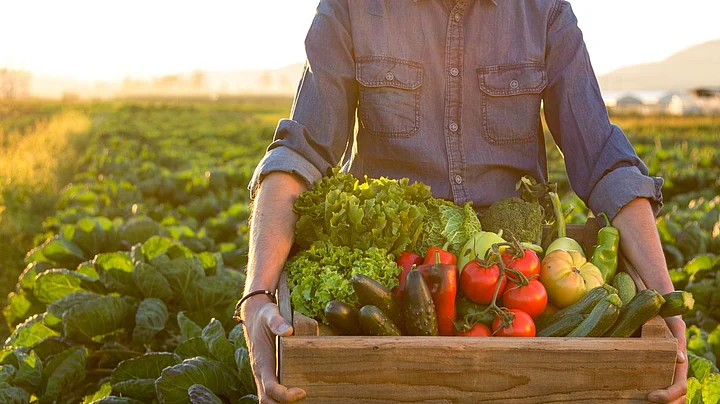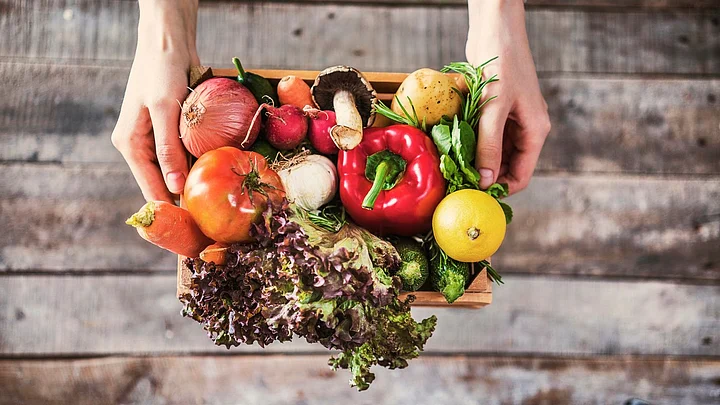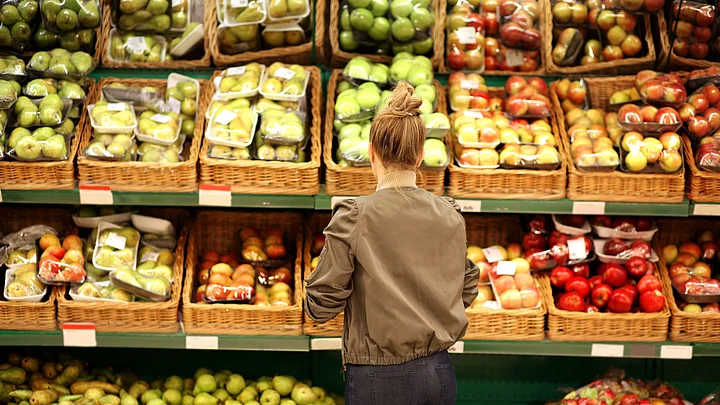Farming in India was always revered, respected, and cultivated with awareness towards the sustainability of ecology, the planet, and future generations. However, today, Indian agriculture is in a sorry state. Most of the food available in the market is laden with chemical fertilizers, pesticides, or is injected with oxytocin to obtain early and abundant produce.
Late Dr. Y. L. Nene, a well-known agricultural scientist from Hyderabad, had shared that the continuous and indiscriminate application of chemical fertilizers and pesticides [insecticides, fungicides, nematicides, herbicides (weed killers), etc.] to the soil throughout India, has led to serious problems of decreased fertility and productivity.
“A package of agronomic practices that would reduce dependency on chemicals is required urgently, and this is where “organic farming practices” to obtain higher crop yields become imperative,” he had explained.
In the last few years, ignoring the impact of climate change, loss of biodiversity, dwindling natural resources, desertification and land degradation have increased the challenges of buying unadulterated food. Amidst the COVID-19 pandemic, these uncertainties have exacerbated.
As the world waits for COVID-19 cure, scientists agree that the best precaution is to enhance immunity by following a healthy way of life where food plays an important role. Organic food, free from chemical residues, would lead to better health of humans and animals.
Natural and Organic

Enter any supermarket, shop, or your neighbourhood grocery store there will be a section for organic food. Even your local vegetable vendor will have organic vegetables and fruits.
The organic food industry started to grow about a decade ago continues to expand further as people realise the health hazards of consuming food laden with artificial chemicals. However, the availability of organic food is still limited and there is a lot of confusion regarding organic products.
When we think of safe food, we think of 'organic' and ‘natural’. However, these terms define two different meanings.
‘Natural’ is not a specified term and may mean lots of different things.
Any food product that is derived from a plant or an animal is called natural; however, that means something like a processed corn snack with naturally-derived flavour, and high-fructose corn syrup could be considered natural.
‘Organic’ is defined as food grown, harvested, and shipped with zero artificial chemicals, fertilisers, or pesticides.
Governments all over the world have strict regulations for farms to meet organic standards.
The shelf life of organic food is more than that of natural food. Natural food is minimally processed and therefore, has high-water content and subsequently shorter shelf life.
Making the Change

Going the organic way is a personal choice. For a conscious change to a healthier lifestyle, we need to eat right by making sure, the food on our plate is grown in a safe and ecologically correct manner.
The bulk of pesticides consumed by us comes from fruits and vegetables. It is impossible to rinse off pesticides from conventional produce. Though washing rinses pesticides from the surface and removes pathogens that cause food-borne illness, the pesticides in the flesh will not get removed. Therefore, washing cannot transform a conventional product into an organic product.
Ayesha Grewal an organic farmer and the owner of The Altitude Store that delivers certified organic and natural products, says, “ kidneys in young kids are not developed to flush out the toxins which make them susceptible to the harmful effects of the chemicals in food.”
Though adults are able to cope better the chemical-laden food is still harmful.
“If you want to shift to organic products start with fruits and vegetables.”Ayesha Grewal advises.
Switching to organic food is a gradual process. It should be an informed choice based on your family’s lifestyle, financial situation, and personal constraints.
Organic Certification
National Governments and international organizations specify certain regulations for organic farming. They emphasize environmentally sustainable practices of cultivation that exclude the use of synthetic petrochemical fertilizers, pesticides, antibiotics, or genetically modified organisms. They endorse the use of green composts, natural fungicides, and herbicides and employing diversity in crop production.
Certified Organic products are stamped by organizations listed under APEDA (apeda.gov.in), the Indian government body responsible for the organic segment. This certification is mandatory for any product to be sold as organic.
Know Your Food
Here are some characteristics of organic food
- Organic fruits, vegetables, and grains are smaller in size.
- Organically grown stuff never has a perfect shape, color, or structure. For example, the color shades in chickpea (chana) are genetically controlled.
- Organic grains get infested by insects easily if stored for a longer time, especially in the humid rainy season. Insects in small numbers don’t contaminate food as pesticides do.
- Buying from the farmers market or weekly markets where villagers bring their products or from organizations that work directly with farmers ensures the reliability of the produce.
- Few holes in your greens are a good sign. This means it is not laden with pesticides.
- Organic food definitely tastes better. The aroma and taste of organic food are sharper. Organic Coriander grown in villages has such a potent aroma that it can be experienced from a distance.
- Organic products cook faster and you don't need to pour additional water.
- Keep the organic products in the refrigerator to store for a longer time.
Buying Organic Food

Organic food is expensive and not easily available in the market.
“The land area under organically produced food and feed is too small, which leads to low total production at a higher cost, thus making it expensive.”Late Dr. Nene
Going the organic way needs planning and action. Consciously switching to buying seasonal and local stuff could be the first step. In India, we have many local varieties of vegetables, especially green vegetables that are available in the farmer’s markets. Eating fresh, local, and seasonal will make you healthy. By buying these products, you increase demand, create a source of income for a small farmer, and protect biodiversity.
With the advance of Ecommerce, many online shops sell organic grains, millets, spices, vegetables, and fruits. To know about local organic food outlets, check newspapers, and social media.
A gradual but consistent change in food habits, more organic food would be easily available and even become affordable.
Once it becomes a way of life, innovations in this sector would lead to a sustainable lifestyle that will safeguard the existence of our planet.
(Nupur Roopa is a freelance writer and a life coach for mothers. She writes articles on environment, food, history, parenting, and travel.)
(At The Quint, we are answerable only to our audience. Play an active role in shaping our journalism by becoming a member. Because the truth is worth it.)